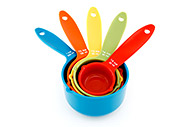
Working hard to lose weight and then failing to reach your goals is frustrating. These are 8 weight loss mistakes you might be making and how to avoid them.
Focusing only on diet and exercise
Diet and exercise are only part of the weight-loss equation. Stress levels and sleep patterns play a role in your success. One study showed that subjects who slept six to eight hours per night and who reported lower stress levels were more likely to reach a 10-pound weight loss goal. Adrenaline, corticotropin-releasing hormone (CRH), and cortisol are hormones released in response to stress. While adrenaline and CRH suppress appetite for a short time, cortisol increases appetite and has a longer-lasting effect after a stressful situation. Research shows that people who sleep fewer than six hours per night also have elevated cortisol. To make matters worse, lack of sleep also causes an increase in the hormone, ghrelin (increases appetite), and a decrease in leptin (suppresses appetite).
All or nothing
A healthy lifestyle is not an all-or-nothing endeavor. You can't let one bump in the road send you on a downward spiral of overeating and skipped workouts. Healthy habits such as eating more nutritious foods, controlling portion sizes, and exercising regularly must fit into the natural ups and downs of life. If you attend a dinner party and enjoy dessert, the next day cut back a few calories at each meal. If a late meeting forces you to cancel your workout on Monday, don’t give up the rest of the week. Add 10 minutes of exercise time on Tuesday through Friday to make up for it.
Not eating enough
For many people, weight loss plans include drastically cutting calories or skipping meals. Both practices lead to excessive hunger followed by overeating. According to nutrition and weight loss guidelines set by the American College of Sports Medicine (ACSM), women should not consume fewer than 1200 calories per day, and men should have no fewer than 1700 calories per day. Doing so may be detrimental to body functions and metabolism.
Drinking your calories
Research shows that we often fail to compensate for the calories we drink. For example, if you drink a 250-calorie sweetened coffee instead of eating food as a snack, it’s unlikely that you will decrease the calories in your lunch or dinner to balance out the extra intake. The consumption of high-calorie drinks (energy drinks, alcohol, coffees, sodas, and juices) makes it easy for your daily calorie intake to creep upward, preventing weight loss. Record all of your drinks and any extras you add to them, such as cream, sugar, or flavored syrups. Remember that even occasional sips throughout the day count too.
Underestimating portion sizes
When following a weight loss plan, it’s important to weigh or measure your food to learn what a healthy portion looks like. This makes it much easier to estimate accurately when you are not dining at home. You can also use common household items to help estimate your food intake. (See Tips for Estimating Serving Sizes)
Forcing yourself to love an exercise
There are too many forms of physical activity out there to force yourself to love one that is not a good fit. Just because you heard that indoor cycling burns a lot of calories or your best friend loves the new kickboxing class doesn’t mean that these classes have to work for you. Try as many options as possible when starting out, and think outside the gym. There is nothing wrong with a weekly exercise program that includes 30 minutes of jumping on the trampoline with your children, a 60-minute family bike ride, 45 minutes of yard work, 60 minutes of yoga in the living room, and a 30-minute swim.
Faith in the fads
It’s tempting to believe in the promise of quick-fix eating plans and supplements. Despite claims, only a healthy lifestyle that includes nutritious food and exercise will result in losing weight and keeping it off. Cutting out food groups, detox diets, and diet pills will not give you lasting success. These methods are not sustainable, and any weight you lose is sure to return.
Expecting too much, too soon
Weight loss takes time. In the first week or two, you may see a quick drop in weight due to water loss. Once you begin to lose fat, changes in the scale will slow. Don’t get discouraged. Experts recommend a weight loss of no more than two pounds per week for health and for keeping it off long term. Stick with it, the time will pass, and before you know it you will reach your goal weight.



 8 Ways to Overcome a Lack of Support for Weight Loss
8 Ways to Overcome a Lack of Support for Weight Loss
 6 Tips for Controlling Portions
6 Tips for Controlling Portions
 Some People Dream of Success
Some People Dream of Success
 5 Breakfasts Under 300 Calories
5 Breakfasts Under 300 Calories
 4 Things to Know About Negative Calorie Diets
4 Things to Know About Negative Calorie Diets
 Healthy Ways to Motivate Your Friends
Healthy Ways to Motivate Your Friends
 How to Make Healthy Restaurant Choices
How to Make Healthy Restaurant Choices
 How Often to Weigh
How Often to Weigh

 Pinterest
Pinterest RSS Feed
RSS Feed